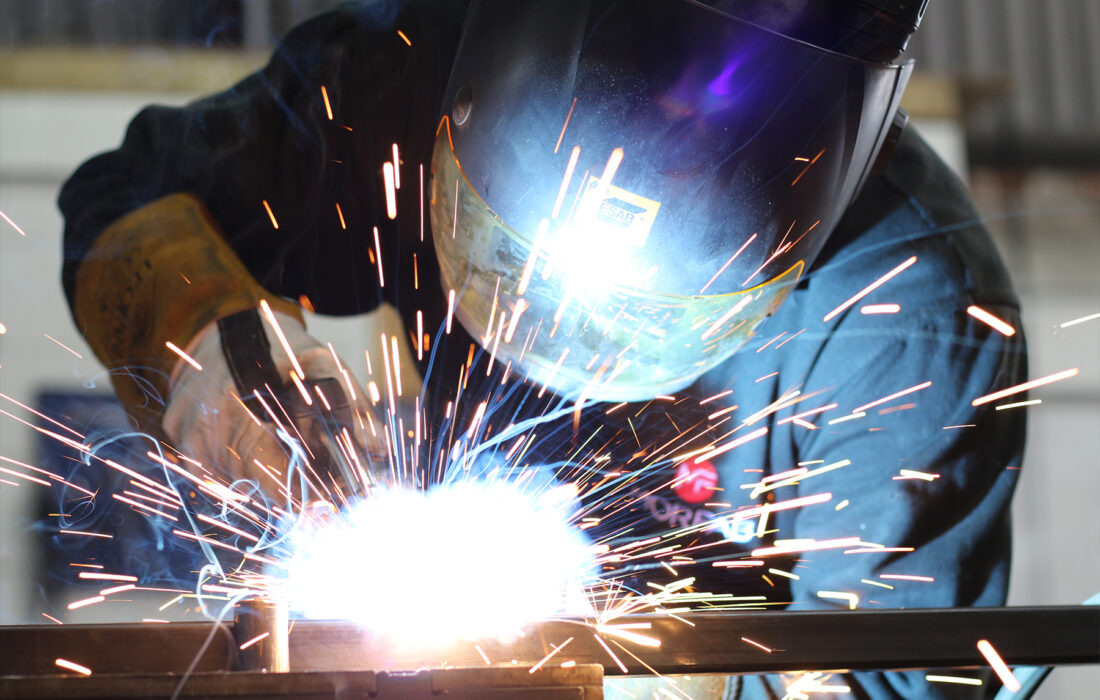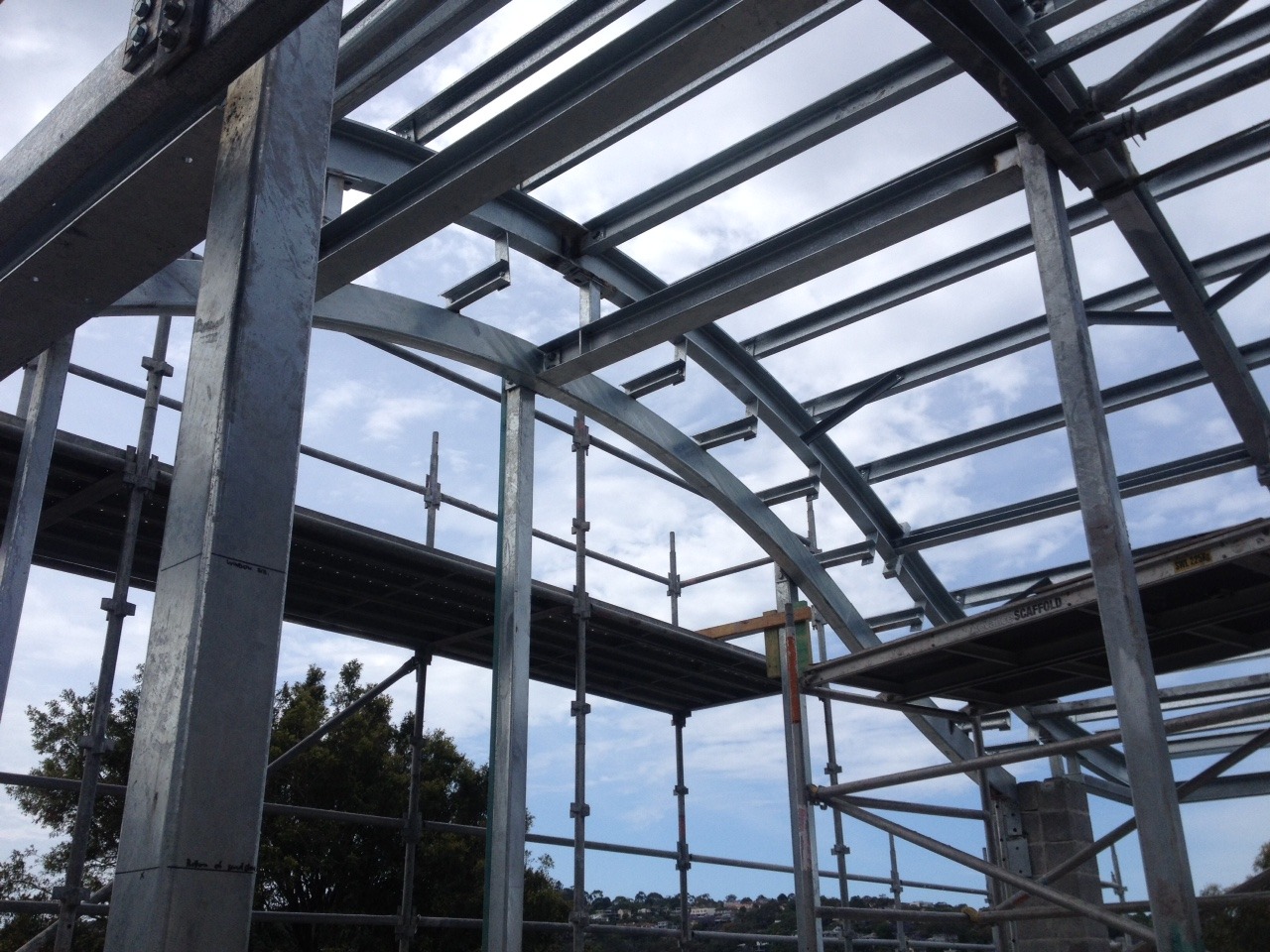Trustworthy Steel Fixing Solutions: Guaranteeing Architectural Stability
Trustworthy Steel Fixing Solutions: Guaranteeing Architectural Stability
Blog Article
The Ultimate Manual on Customized Steel Fabrication Solutions for Structural Projects
In the realm of structural projects, the relevance of personalized steel construction solutions can not be overemphasized. From the foundational understanding of steel fabrication basics to the detailed procedure of picking the most appropriate materials, every action in this journey plays an essential duty in the best success of a project.
Understanding Personalized Steel Fabrication Essentials
Exploring the fundamentals of custom-made steel construction gives understanding right into the intricate process of changing raw steel into customized architectural parts. Custom steel manufacture is a customized production strategy that includes cutting, shaping, and setting up steel materials to develop one-of-a-kind frameworks according to particular job demands. Comprehending the fundamentals of customized steel manufacture is essential for making certain the effective implementation of architectural tasks.
The procedure normally starts with the assessment of project requirements and layout needs. This first stage entails detailed planning and collaboration between engineers, makers, and designers to identify the most ideal method for producing the steel components. Accuracy is key throughout the fabrication process, as also minor variances can influence the structural stability of the end product.
Numerous techniques, such as reducing, welding, and shaping, are utilized to change raw steel into the preferred structural components. Proficient fabricators utilize sophisticated equipment and tools to ensure precision and consistency throughout the manufacture process. Quality control steps are executed to confirm the integrity of the fabricated elements prior to they are set up on-site, making sure compliance with industry criteria and task specifications.
Selecting the Right Steel Materials

Most importantly, the type of structural project and its certain demands play an important role in identifying one of the most suitable steel materials. Elements such as the load-bearing capability, ecological conditions, and desired lifespan of the structure will dictate the grade and sort of steel that must be made use of.
Moreover, the physical residential or commercial properties of the steel, consisting of ductility, strength, and weldability, need to line up with the project's needs to guarantee ideal efficiency and toughness (Alpha reo). In addition, factors to consider such as rust resistance, cost-effectiveness, and accessibility of the steel materials need to also be taken into consideration throughout the selection procedure
Layout Considerations for Architectural Tasks
Architectural projects necessitate thorough focus to develop factors to consider to make sure both performance and security are prioritized throughout the building and construction procedure. When it comes to developing architectural jobs, numerous crucial aspects must be taken right into account to assure the success of the undertaking. By very carefully taking into consideration these facets throughout the style phase, designers and designers can guarantee the architectural project's success from conception to conclusion.
Improving Construction Processes for Effectiveness

In addition, carrying out lean production principles can considerably improve effectiveness in steel fabrication. By decreasing waste, enhancing workflow, and boosting communication in between various teams included in the manufacture process, jobs can be completed much more swiftly and with better standards.
Furthermore, establishing a well-organized production routine and workflow can assist in focusing on jobs, designating resources properly, and special info meeting job target dates quickly. By having a clear strategy in place and consistently checking progress, any type of potential bottlenecks or delays can be identified and dealt with quickly, making certain reliable and smooth manufacture processes for architectural jobs.
Quality Assurance and Task Management in Steel Fabrication
To make sure the successful execution of steel fabrication jobs, thorough quality assurance steps and efficient job administration practices are essential components in keeping precision and meeting client expectations. Quality control in steel fabrication entails extensive inspections at different stages of the fabrication procedure to confirm compliance with job specifications and sector requirements. This includes material testing, dimensional checks, and weld inspections to make certain structural integrity and safety.
Task monitoring plays a crucial duty in working with the different aspects of steel fabrication tasks, such as organizing, source allocation, and communication amongst employee. A distinct task strategy with clear goals, landmarks, and timelines helps to monitor progression and deal with any kind of potential concerns proactively. Reliable interaction in between all stakeholders, consisting of clients, engineers, specialists, and producers, is essential for ensuring that the task advances smoothly and meets the desired top quality criteria.
Conclusion
To conclude, customized steel fabrication plays a vital role in architectural projects by giving tailored solutions utilizing the appropriate products and layout considerations. Performance in manufacture procedures, high quality control, and reliable task administration are crucial for effective outcomes. By understanding the fundamentals of custom-made steel manufacture and executing streamlined procedures, task groups can deliver top quality and long lasting frameworks that fulfill the certain needs of their clients.
Personalized steel fabrication is a customized manufacturing method that involves cutting, shaping, and setting up steel products to produce one-of-a-kind structures according to specific task requirements.To ensure the effective execution of steel fabrication jobs, careful top quality control procedures and effective check that job administration techniques are vital components in maintaining accuracy and meeting client assumptions. Quality control in steel fabrication entails extensive assessments at numerous stages of the construction procedure to confirm compliance with job specs and market standards (steel fabricators melbourne).Job management plays a vital function in working with the different elements of steel fabrication jobs, such as scheduling, resource appropriation, and communication amongst team members.In conclusion, customized steel construction like this plays a vital role in structural jobs by providing tailored services making use of the best materials and style considerations
Report this page